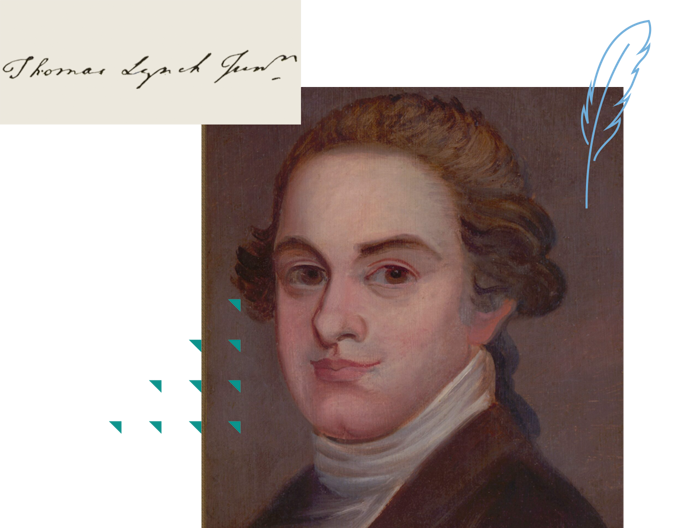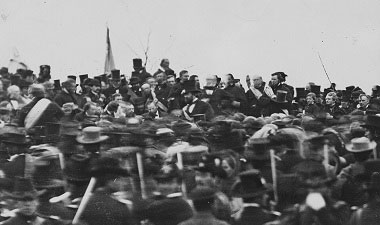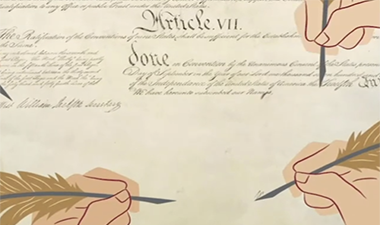Thomas Lynch Jr. came from a prominent South Carolina family, and he replaced his father at the Second Continental Congress, as one of the youngest signers.
Thomas Lynch Jr. | Signer of the Declaration of Independence
2:16
Thomas Lynch Jr. was born in 1749, the only son of a prosperous rice planter. He was raised by a politically-active father who represented South Carolina in the Continental Congress until a cerebral hemorrhage paralyzed him in February of 1776.
Like many sons of wealthy planters, Thomas Lynch Jr was sent to England for a better education than the colonial world could provide. He received a degree from Cambridge University and went on to study law at the famous Inns of Court in London. Here, it was said, he “devoted himself with characteristic zeal to the philosophy of jurisprudence.” But as an American who shared with his father a deep concern about the changes taking place in British colonial policy, he did not feel comfortable in England. He found the haughtiness of British statesmen toward the colonies troubling, and he often expressed a longing to come home. Yet he would remain abroad for more than eight years. He returned at last as an accomplished and clever young man, with graceful manners that made his father proud.
Despite his legal training, Lynch decided against setting up a practice. Instead, he followed in the footsteps of his father as a planter. He followed his father’s example in politics as well. As war drew closer, he became a captain in South Carolina’s militia. On a military recruiting excursion to North Carolina, he came down with malaria and could not recover his health. Yet when he was elected to fill his ailing father’s seat in the Second Continental Congress, he did not hesitate. Thomas Lynch Sr and Jr were the only father and son to serve in Congress.
Thomas Lynch Jr signed the Declaration of Independence before his 27th birthday. He held out hope that his father would recover enough from the effects of the cerebral hemorrhage to sign the Declaration as well, but in this he was disappointed.
Lynch returned home from Philadelphia, never to play a role in politics again. The malarial fever he had contracted in North Carolina remained, wracking his body and leaving him weaker with every passing day. In 1779 his doctors advised him to travel to France, where therapeutic help might be available. Because the revolutionary war was still raging, he and his wife boarded a ship bound for the West Indies in hopes of finding transportation across the ocean from the port in St. Eustasius. After only a few days their ship vanished. It is likely that a storm struck the vessel and its passengers and crew drowned. The “Bermuda Triangle” had taken the life of the second-youngest signer of the Declaration of Independence.








